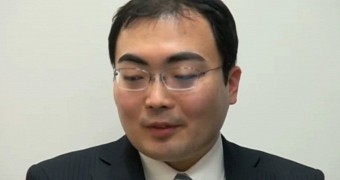A Japanese hacker received an eight-year jail sentence on Wednesday after he used his computer skills in 2012 to compromise the systems of innocent individuals and use them to issue death threats.
The malicious activity of 32-year-old Yusuke Katayama in 2012 led to the Tokyo police wrongfully arresting four people (in Tokyo, Osaka, Fukuoka and Mie prefectures) who had been framed by the hacker.
Police technological illiteracy leads to arresting innocents
It seems that the interview practices of the police also caused two of the innocent individuals to confess for crimes they did not commit. In one case, it was a bomb threat and in another a pledge of a mass-killing.
When confronted with undeniable evidence that those arrested were not guilty of the charges, the National Police Agency (NPA) issued a public apology.
According to media reports, one suspect was detained for weeks before media and a cybercrime expert received anonymous information that could have been known only by the real offender.
On the list of threats issued by Katayama there were killing people at a comic book event, attacking an airplane, and bombing the kindergarten attended by Emperor Akihito’s grandchildren.
It appears that the hacker, who is an IT specialist, carried out thorough reconnaissance before committing the offenses. He would infect the computer of a victim with a Trojan called Remote Control Virus, which would allow him to issue the threats from the compromised devices.
Police sent looking for a stray cat on island
Notorious in the investigation is the incident that ultimately led to Katayama’s arrest, where the hacker taunted the police with emails directing them to search for a stray cat on the island of Enoshima (60km south of Tokyo).
The cat had a collar with an SD card attached to it containing information about the virus that only its developer could have known.
At the trial, the prosecutors sought a 10-year sentence, but the defense managed to drop it to eight. When initially arrested, Katayama pleaded not guilty and maintained this stance until May 2014, when he admitted to committing the offenses.
At one point in the investigation, the suspect was released on bail but was detained again after surveillance cameras caught him trying to bury a smartphone containing incriminating evidence for a false alibi.
At the moment, Katayama has the possibility to appeal against the verdict, but his lawyer, Hiroshi Sato, has said that the hacker has not made a decision about this.

 14 DAY TRIAL //
14 DAY TRIAL //